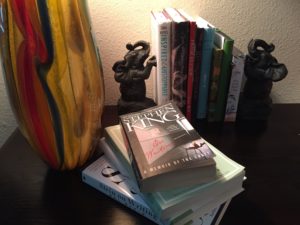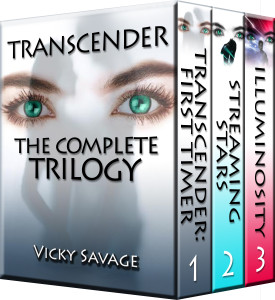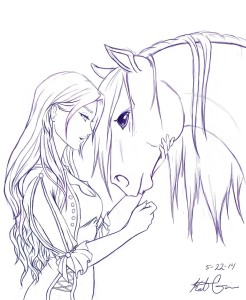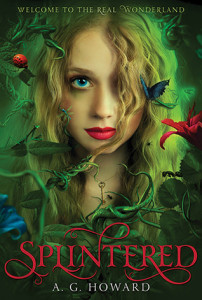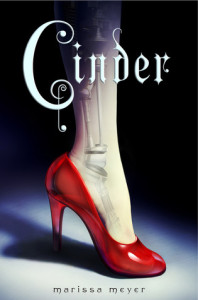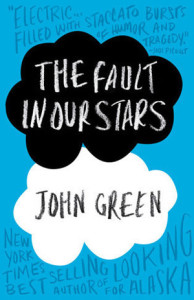writing
Time for true confessions: When I first got into the business of writing novels, I was as naïve as they come. I’d practiced law for a number of years, worked hard to reach the upper echelons of corporate management, and then, feeling tired and burned out, took some blessed time off to be at home with my two kids. At one point, when my youngest was in middle school, I got it into my head that I could write the next Harry Potter or Twilight series. So, with no training whatsoever, I set out to do just that. It took me four years to complete my YA sci-fi series, the Transcender Trilogy—a year longer than it took me to complete law school, and every bit as much of an education. So far, I’m sorry to say, it hasn’t broken any sales records! 🙂 But I never had so much fun!
Recently, I received a Certificate in Editing from Poynter University and ACES (American Copy Editors Society). This article is my first on the editing process. I hope that by sharing some of my own initial faux pas, I can spare others from making similar mistakes.
Five Costly Mistakes I Made:
- Having my manuscript edited too early in the process. From the moment I put the last period on the last sentence of my first complete manuscript, I began searching for an editor. The writing process had been long and arduous, and I was so thrilled to be finished at long last, that I didn’t realize my draft still needed A LOT of work. Big Mistake. The document I received back from my first editor was crammed with so many comments, corrections, and suggestions for revision that I was forced to hire a second editor just to edit my rewrites, and a third to proofread and copyedit the final draft (because, as I learned the hard way—rewrites introduce brand new errors).
My Advice: Save yourself a ton of time, money, and heartache—once your manuscript is complete, celebrate by taking some time off to savor your tremendous accomplishment. Put the manuscript away for at least a week (longer if possible) and then go back to it with fresh eyes and a red pen. I assure you, you’ll find a ton of things that need correcting or revising prior to sending it off to an editor.
- Not having a clear agreement with my editor as to what and how her services were to be provided. I still shake my head in amazement when I think of how careless I was about pinning down details with the editors I hired. With my background, I should’ve known better, but at the time, I didn’t understand about the many levels of editing—which range from ghostwriting to simple proofreading and grammar fixes—and the different sets of duties that go along with each level. Even more eye-opening for me was the fact that not every editor provides comments and corrections in the same fashion. I swear this anecdote is true: one supposedly experienced editor I hired actually retyped my entire manuscript making her changes as she went along, and providing me with no way to determine what those changes were. I was devastated by her arrogance and forced to trash all of her work, since she had essentially made my book her own. I also had to eat the not inconsiderable sum I’d already paid for her services and find another editor.
My Advice: Reputable editors will clearly spell out their services before undertaking a project. You may ask for different or additional services, but expect to pay more if you add services. You probably don’t need a seven-page, signed contract with your editor, but you should get the final agreed-upon list of services in writing. Also, ALL reputable editors will clearly mark their changes on your original document. Some still do this by hand on a hard copy of the manuscript, but most now use the “track changes” function in a word processing program, which allows you to “accept” or “reject” the change with a simple keystroke. If it’s not expressly stated, ask your editor how comments and corrections will be handled.
- Hiring an editor because she was cheap and discovering she knew less about editing than I did. These days, whether you’re attempting to find and agent or going the self-publishing route, your book needs to be polished and up to professional standards. I’ve had the good fortune of working with a couple of amazing editors over the years, but my experience has been that good editors don’t come cheap. This is an area where you cannot afford to scrimp, though. Publishers and literary agents have little tolerance for sample pages with misspellings and format errors, and readers will absolutely crucify you on Amazon if you self-publish a book that is poorly edited.
My Advice: Interview a few editors—in person or via Skype or email—before you hire someone. No specific degree or certificate is required for someone to say they are an editor, so make certain the one you hire has the credentials and experience you’re looking for. It helps if that person has previously edited or written in your genre, or at least has a good working knowledge of the area. Also, find someone whose personality and work ethic mesh with yours. The editor-writer relationship requires clear communication, evenhanded negotiation, and mutual respect.
- Taking editorial comments personally and not as suggestions to improve my manuscript. Many editing courses strongly emphasize the delicate task editors undertake in proposing improvements to a writer’s work without offending him or her. Nobody needed to explain that to me—I already learned it first hand. Over the course of having my three books and several short stories edited, I’d experienced anger, frustration, and even tears over certain editorial comments regarding my precious work. Didn’t my editor understand these were my babies she wanted to do away with? Every writer hopes his or her editor will say, “Wow! This manuscript is perfect just the way it is!” But believe me, no matter how well you write, that’s never going to happen. You’re going to have to sacrifice some of your “little darlings” along the way.
My Advice: Remember, editorial comments are only suggestions—one person’s opinion–which you are entitled to ignore if you wish. BUT, editors are also readers, and if one reader has a problem with your novel’s pacing, or a certain passage, plot-point, or character, it’s in your best interest to seriously consider whether other readers might have the same reaction. Regarding revisions, Mary Barnhill said, “…every cut hurts, but something new always grows.” So grow some thicker skin—you’re going to need it when those Amazon reviews start pouring in!
- Being in a rush to query agents/publish my book. I know, I know, you’ve spent months, maybe even years writing your manuscript, now you want to share it with the world and begin reaping the benefits for all your hard labor. After all, your mother said it’s the best book she’s ever read, right? Stop for a minute, and remember Hemingway’s observation: “The only kind of writing is rewriting.” Edits always require some amount of rewriting. At times, large portions of your manuscript will need to be reworked. In the past, I was impatient and sometimes rushed my rewrites—particularly with my last book, when I was receiving almost daily pressure from readers anxious for the final installment of the trilogy. In hindsight, I probably should have relaxed and allowed myself more time for rewrites.
My Advice: Don’t short-change yourself and your project—take all the time you need to thoroughly address any editorial comments. Discuss them with your editor, and think them through rather than just slapping a Band-Aid on the problem. My trilogy has been well received, and the experience as a whole was invaluable, but I sometimes wish I could go back and rewrite those books, using what I’ve since learned about writing and editing. Some will tell you, “Done is better than perfect.” But your writing will forever stand as a reflection on you. If you take the time to polish your work to the point where you can say, “This is as tight and perfect as I can make it,” you can always be proud of the final product.
Good Luck to you in all your writing endeavors!
Not wrestling the guy–just his advice! Continuing my series on my favorite quotes and epigraph, I want to share two quotes (and the epigraph) from Stephen King’s book On Writing: A Memoir of the Craft – one quote I love and agree with completely the other quote is, in my humble opinion, 100% wrong, and terrible advice for writers!
Before I get to the quotations, a word about the book On Writing: I highly recommend it to anyone who is a writer or considering becoming a writer. Although I found the memoir part to be a bit slow and boring, I dare say King’s fans will find it fascinating. More importantly the advice bits in the book (with the exception noted below) are incredibly valuable and worth the slog through the rest. Pay special attention to the appendices at the back of the book: “And Furthermore Part I,” which contains an actual example of King’s editing process (worth studying); “And Furthermore Part II,” which contains a lovely book list.
My favorite King quote: “If you want to be a writer, you must do two things above all others: read a lot and write a lot.”
In my own work I’ve found this to be absolutely true! Reading, reading, reading, good books, bad books, poetry, literary journals, movie reviews, even a well written cereal box contributes to your knowledge and skills. For me there’s nothing more inspiring than a piece of brilliant writing. It forces me to strive for excellence in my own work. Even crappy writing has its place—to instruct us what not to do. Some complain it’s difficult finding the time to read, and admittedly, I don’t always have time to read a novel, but so much wonderful short writing exists out there today, there’s really no excuse. Check out Kindle Singles! As far as writing goes, I’ve found these skills must be exercised, or like flabby thighs, they begin to lose tone and appeal.
My least favorite King quote: “Any word you have to hunt for in a thesaurus is the wrong word. There are no exceptions to this rule.”
WRONG! Please, if you’re a new writer or considering becoming a writer, do not follow this advice. In your work, it’s of the utmost importance to use precisely the best word to convey the action, thought, or feeling you’re trying to get across to the reader. Well, guess what? That precise word does not always pop right into your mind! (Unless you’re SK, apparently) You may be able to visualize it, feel it, hear it, even smell it, but at times the proper word may frustratingly elude you. At these moments, the thesaurus is your best friend. I use it dozens of times a day—sometimes just to check to be certain there’s not a better word than the one I’ve already chosen. I believe that makes me a better writer. Sorry, Mr. King, but I take exception to your rule!
As a little bonus, I leave you with the epigraph to King’s On Writing. It always makes me smile:
Honesty’s the best policy.~ Miguel de Cervantes
Liars prosper.~ Anonymous
Apologies to anyone who thought this post was about wrestling! 🙂
“When we sit down each day and do our work, power concentrates around us. The Muse takes note of our dedication. She approves. We have earned favor in her sight. When we sit down and work, we become like a magnetized rod that attracts iron filings. Ideas come. Insights accrete.” ~ Steven Pressfield, The War of Art: Break Through the Blocks and Win Your Inner Creative Battles.
I love great quotations and epigraph. In fact, my original draft of Transcender: First Timer, featured an epigraph at the beginning of each chapter, but due to space and copyright considerations, I dropped them before publishing the book. Since, as you may have noticed, I’ve had a bit of difficulty keeping up with my blog recently *blushes*, which I attribute to lack of a consistent theme, I’ve decided to select a favorite quotation or epigraph each week and write about it here.
I chose to begin this blog series with one of my favorite quotations on writing from Steven Pressfield’s the War of Art, a book I highly recommend to any writer or aspiring writer. For me, the above quotation beautifully sums up a strange phenomenon that sometimes occurs when I’m writing. During those mystical magical times, when I’m in the zone and the elusive Muse drops by for tea, the story takes on a life of it’s own, almost as if it’s writing itself. It can be an eerie experience. I’ve had characters say and do things I never planned or even dreamed of including in the storyline. But in that otherworldly place where my own existence is subservient to the narrative, it’s the characters’ story not mine, and I’ve found it best to let them run with it.
For example [spoiler alert if you haven’t read the entire Transcender Trilogy]: In a scene in Book Two of the Trilogy, one character tells another that someone with whom she is close is not human at all, but an automaton. Of course she was stunned to learn this—but so was I! It definitely was NOT a planned plot element. I soon realized, however, I should have known it all along, and if he could fool me, he could certainly fool her. In fact it worked so well with the rest of the story that I couldn’t imagine why I hadn’t thought of it in the first place.
These are the mind-blowing moments that make all the drudgery, anxiety, and crippling self-doubt of being a writer worthwhile. Of course, it takes some sustained writing for this marvel to occur, but anyone who has slogged away crafting an entire book has most likely entertained the Muse on more than one occasion. Here’s hoping she visits you (and me) often!
Wishing you happy reading and writing and Happy Father’s Day to all you dads or surrogate dad’s out there!
Thanks to everyone who entered the Goodreads giveaway of ten signed copies of ILLUMINOSITY, and congratulations to all those who won! You’ll be receiving your books soon.
If you missed out this time, never fear, on Monday, July 21, I am beginning a week-long, whirlwind Blog Tour and Giveaway—two posts a day with some amazing bloggers! The grand prize is a $50 Amazon gift card and a set of signed Transcender Trilogy books. Second and third place prizes will be awarded also, with a chance to win a Transcender T-shirt.
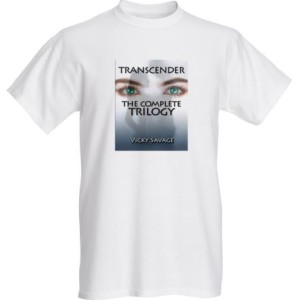 I hope you’ll follow along and join in the fun! Take the Transcender Character Quiz to see which character you are most like, and don’t miss my Dream Cast for the Transcender Movie. Should be a great time with plenty of opportunities to win!
I hope you’ll follow along and join in the fun! Take the Transcender Character Quiz to see which character you are most like, and don’t miss my Dream Cast for the Transcender Movie. Should be a great time with plenty of opportunities to win!
Transcender Blog Tour Schedule:
July 21 Ensconced in Lit – review and Crystal in Bookland – guest post
July 22 Pandora’s Books – guest post and Ensconced in Lit – character interview
July 23 YA Book Nerd Reviews -review and Wonderland of Reading – review
July 24 The Whimsical Mama – guest post and Fly to Fiction – Review
July 25 Tea and Fangirling – Review and A Reading Nurse – guest post
July 26 I Heart YA Fiction – Author Interview and Mary Had a Little Book Blog – guest post
Also, please sign up for my Newsletter, if you haven’t already. I only send them out occasionally when there is something special to announce!
Thanks for stopping by, and good luck in the Giveaway!
Hi Everyone and Happy Father’s Day! Thought you would enjoy another amazing sketch from talented artist Kat Gavin. This melted my heart. So gorgeous!
I’m excited to announce a Giveaway on Goodreads of ten signed copies of ILLUMINOSITY, Transcender Trilogy Book 3. The giveaway runs from today, June 15 to July 15. Please enter to win here: https://www.goodreads.com/giveaway/show/96384-illuminosity-transcender-trilogy-book-3.
I’m adding a link to an Excerpt of the first three chapters of ILLLUMINOSITY just to whet your appetite. Hope you enjoy! https://dl.dropboxusercontent.com/u/94935558/ILLUMINOSITY%20EXCERPT.docx.
Also, if you’ve read Books 1 and 2 of Trilogy, I would greatly appreciate it if you would stop by the Amazon page for my two-book Box Set and leave a short review. http://www.amazon.com/dp/B00K8CTRTK . By the way, the Box Set makes a great Father’s Day Gift!
Re-Blogged from my Orangeberry Book Tour
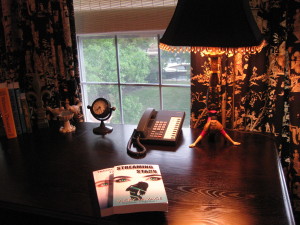 I’d like to share some pointers I’ve picked up since embarking on my journey as a writer:
I’d like to share some pointers I’ve picked up since embarking on my journey as a writer:
1. BEING AN AUTHOR IS AS MUCH ABOUT MARKETING AS IT IS ABOUT WRITING.
“That can’t be!” you cry. But alas, it’s true. Writing the book is the easy part. Whether you’re and indie or traditionally published author, expect to spend a large chunk of time marketing your books. You’ll find many aspects of it can be fun. Accept it as part of the process and enjoy!
2. YOU NEED AN AUTHOR PLATFORM.
An “Author Platform” is simply your internet presence, your visible “brand.” It’s what readers will find if they Google you, and it’s an efficient way to develop a loyal fan base. Generally, a platform consists at a minimum of a website, Facebook Fan Page, Twitter account, blog, and, optionally, accounts on LinkedIn, Pintrest, Google+, and/or Instagram. Don’t panic. It’s not as daunting as it sounds and it can be built over time.
3. YOU MUST SHOW UP FOR WORK.
The good news: being a writer is great fun and there’s no dress code! The bad news: you actually have to do the work. Make a schedule and try to write at the same time and for several hours each day. Don’t answer the phone, check your email, or raid the refrigerator. You’ll be amazed at how much you get done.
4. YOU WILL VISIT THE PIT OF DESPAIR.
It’s unavoidable. Every writer experiences bouts of self-doubt every now and again and for no apparent reason. It’s an occupational hazard like black lung disease (only worse). The best way to handle it is to recognize it’s temporary. Focus on your accomplishments, read a piece of amazing writing, polish the chapters you’ve already written, call a friend who can be trusted to talk you off the ledge. Just relax until it passes.
5. READING IS AS IMPORTANT AS WRITING.
“If you don’t have time to read, you don’t have the time (or the tools) to write.” – Stephen King. I find reading invaluable for three reasons: it keeps me current in my genre; it keeps my writing sharp; and it’s a relaxing break from writing. Actually, I feel like I’m still working whenever I’m reading a good book, because I’m observing another author’s style, plot development, character growth, etc.
6. NO MATTER HOW GREAT YOUR WRITING, EXPECT TO GET DISSED.
They say you’re not a real writer until your first bad review. Regardless, it stings like hell. Learning to shrug off a bad review is essential to surviving in this industry. Maybe the reviewer just didn’t understand your book, or didn’t really read it. Sometimes, though, the reviewer has a valid point, in which case we need to take our medicine, no matter how foul tasting, and try to benefit from it. My recommendation: grow some Rhino skin.
7. IT’S OKAY TO SHOVEL CRAP AS LONG AS YOU CLEAN IT UP LATER.
The best advice I ever received as a writer is: “Do whatever it takes to get that first draft completed.” Don’t worry about how inane or ugly it is. You can fix it later. It goes against our perfectionist tendencies, but it really works.
8. WRITING IS A LIFE-LONG HONING OF THE CRAFT.
I’m constantly amazed at how much I learn every day just by reading other writers’ blogs, participating in author forums, or listening to readers. Remember, even after you fearlessly claim the title “Writer,” there’s always room for improvement.
9. AN EXTENSIVE VOCABULARY IS MORE IMPORTANT THAN KNOWLEDGE OF GRAMMAR.
Vocabulary and grammar are both important to writing, but rules of grammar are broken more often than they’re observed in novel writing, especially where dialogue is concerned. I do little things every day to expand my vocabulary. Grammar I leave to the editors.
10. EVEN ON ITS WORST DAY, WRITING IS MUCH MORE FUN THAN PRACTICING LAW.
Enough said!
Okay, you’re cooking along on your manuscript. You love what you’ve written so far, the story’s gelling, and it looks like you might even meet your deadline. Then one day you plop down in front of the computer and what the?… it’s just not there anymore. Your mastery of words has evaporated, your ideas have turned to dust, and your brain is completely sucked dry of all creative juju. It’s even looking like the stuff you thought was so brilliant yesterday is actually a pitiful pile of banal blather that needs to be thrown into the trash compactor with wet coffee grounds poured on top. You begin wondering why you didn’t just become an auto mechanic like your aptitude tests all said you should.
Don’t despair, you just have a case of writer’s self-doubt. It happens to us all of us. At one time or another we all face the fear that our writing just isn’t good enough. So, what’s the cure? Some writers suggest that you simply write your way out of it. Well, hello? Writing’s the problem in the first place. Sometimes a different solution is required to remove the grotesque mass of creativity clogging goo from your stream of consciousness and to get your fingers tapping those keys again in that magical, enigmatic rhythm that causes delicious prose to literally pour onto the page like hot caramel.
Soothing Self-Doubt
Researching this subject, I was stunned at the number of articles on writers’ self-doubt. It’s an epidemic! So how do you wrestle the culprit to the ground and kill it? The short answer is: You don’t! That’s giving self-doubt way too much power over you.
The key is to relax and cut yourself some slack. Self-doubt is like the common cold—you can’t cure it, but you can soothe it and shorten it. Eventually it will go away by itself. Trust me.
Here are a few techniques to soothe and inspire you while waiting for your creative juju to return.
- Embrace your self-doubt. Robert Hughes said “The greater the artist, the greater the doubt. Perfect confidence is granted to the less talented as a consolation prize.” All talented writers have experienced self-doubt at one time or another. So, if you want to be considered up there with the greats, self-doubt is something you learn to deal with.
- Focus on your accomplishments, and resist the urge to compare yourself to others. Re-read your good reviews and fan posts. Ignore the people who just don’t get your work. It doesn’t matter how amazing your writing is, someone is going to trash it. It goes with the territory. Keep reminding yourself of how much you’ve already accomplished and how much more you still want to do. Call your mom, she’ll tell you how great you are.
- Find a good book on editing and polish up what you’ve already written. I love the rewriting process, because I always find a sentence or paragraph or scene that can be made better with a little shrewd editing. It builds confidence to improve on what you’ve already got, and it’ll give you something constructive to do until this passes. I recommend Stein on Writing by Sol Stein.
- Re-read a great piece of writing. Dust off your favorite book of all time and be reminded of what inspired you to write in the first place.
- Make a list of your favorite phrases, descriptions, and scenes of all time. Read through your list when you feel stuck. Find one emotion-packed word you can use or a phrase you can tailor to fit your own plot. Plug it into your story and start writing.
- Watch Elizabeth Gilbert’s superb TEDTalk “Your Elusive Creative Genius,” http://www.ted.com/talks/elizabeth_gilbert_on_genius.html. She’ll convince you that the divine attendant spirit who really writes your books is just taking a little break … she’ll be back!
Most of all, be patient!
Choosing your book cover is not simple, but it can make all the difference in whether your book gets more than just a passing glance. It’s not as complicated as some would have you believe. Articles abound claiming to have the “Five Critical Elements” or the “Ten Keys” for making your book fly off the shelf. But after synthesizing a number of articles on the subject, it appears to boil down to three closely interrelated and overlaping qualities: (1) The Pop Factor; (2) Genre Identity; and (2) Instant Connection.
The Pop Factor: It’s not rocket science. Visualize a crowded book shelf. Does your cover stand out? Is it distinctive and eye-catching? If not, it’s likely to get overlooked. Period. This doesn’t mean you make your cover as provocative as possible. Rather, the goal is for it to be captivating and clear. There is also a more subtle piece to this distinctiveness factor–your cover must speak to your target audience. Which brings us to …
Genre Identity: Does your cover follow the current trends in your genre or category? It’s great if you want to step out a little and forge some new ground while still appealing to your target audience. But genre confusion in a cover is a killer. If your category is YA and your cover looks like space opera sci-fi, forget it. It needs to appeal to teens (or adults who like to read YA). If it’s a mystery and it looks like a romance, people browsing the mystery shelves are not likely to pick it up. Do your research. What do the current best sellers in your genre look like? Which brings us to …
Instant Connection: Call this the Three Second Rule. Experts say the average person browsing in a book store gives your book approximately three seconds before deciding whether to pick it up or move on to the next. Does your cover engage the emotions, or at least intrigue the reader enough to want to read the back cover blurb? Your cover may be distinctive and eye-catching, but if it doesn’t instantly pique the emotions of your target reader, you’ve probably missed the boat, and a potential sale!
Covers that Score a Home Run: Two of my favorite YA covers (which also happen to be two of my favorite books this year) have nailed all three of these key factors: Splintered, by A.G. Howard and Cinder by Marissa Meyer:
Exception to the Rules: Of course there are always exceptions to the rules. If it hadn’t been for all the pre-release hype for the wonderful The Fault in our Stars by John Green, I never would have picked up this bestselling book. The cover doesn’t speak to me at all:
What do you think is the most important element of a good book cover? What’s your favorite book cover?
Are you a writer? Do you actually tell people you’re a writer? If so, do you get questions like “Are you famous?” “Are your books on the New York Times Bestseller list?” “Do you make any money at it?” In the past these questions intimidated me because, in my case, the answers are no, no, and none of your business.
Why do we writers find it so difficult to own up to our profession? Is it our insecurities? Is it that no higher authority has conferred the title upon us? Is it to avoid the probing questions that inevitably follow? For me it’s probably a combination of all of these.
When I graduated law school and passed the bar exam, I proudly proclaimed to anyone who would listen “I’m a lawyer.” My practical experience in the law at that point was paltry at best, but after years of law school and a grueling bar exam, I felt I’d earned the title, and I bandied it about like a badge of honor (though some people took it more as a condemnation than an accolade).
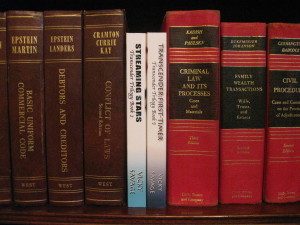 Why then, after publishing two novels, did I have difficulty saying: I’m an author?
Why then, after publishing two novels, did I have difficulty saying: I’m an author?
After a bit of thoughtful analysis, I believe the reason is that writing is such an utterly personal endeavor. If you’re doing it right it’s like pulling your guts inside out and exposing the rawest, most vulnerable parts to the world. I passed off my writing as a hobby for so long because I didn’t want anyone to know just how vulnerable I really was. I didn’t want them to observe my innards laid bare and say “is that all you got?”
Lawyers experience wins and losses. Every loss is a blow to the ego, but many factors, other than sheer talent or lack thereof, contribute to legal defeats—maybe the case was a dog to begin with, maybe the client made the all the wrong moves, and so on and so on. In other words, lawyers are handed someone else’s mess and asked to tidy it up as best they can. An unfavorable outcome can’t necessarily be blamed on the lawyer.
Writers on the other hand create something from nothing. We whip words and imagination into combinations as yet unknown on this earth. But if some careless reviewer or tactless acquaintance deems our creation more repugnant than ravishing, our world crashes down. We feel we somehow we don’t measure up, and we have only ourselves to blame. How ridiculous is that?
Writing is art, pure and simple.
Some will appreciate your work, some will not. If you have produced a piece of writing—be it a novel, short story, article, poem, whatever—and you’ve done your best, that, in and of itself, is an amazing accomplishment! You have a right to be proud. Claim it, own it, and have the courage to ignore others’ opinions. Shout from the rooftops “I’m a writer!” Once you wear the mantle proudly, I believe you become a better writer because you now take your role seriously.
It took some time for me to internalize this. But at a recent cocktail party, the hostess introduced me to another guest by saying “This is my friend, Vicky. She’s a lawyer too.” I shook hands with the gentleman and promptly set the record straight. “Actually, I’m an author,” I said. “I haven’t practiced law in years.”
The man nearly swooned with envy. “That’s fantastic! I bet you don’t miss the practice of law at all.”
His reaction made me smile. You know, I haven’t missed the law for a minute!
Do you ever balk at telling people you’re a writer? If so, why? For those of you who declare it proudly, when did you first feel comfortable calling yourself a writer?
About

I’m a writer and author of novels, short stories and poetry. My TRANSCENDER TRILOGY blends science-fiction, fantasy, and romance in an exciting cross-dimensional adventure. My latest, The Weight of Air, is a short work of contemporary fiction presenting a tantalizing "Would I?/Wouldn't I?” dilemma.

